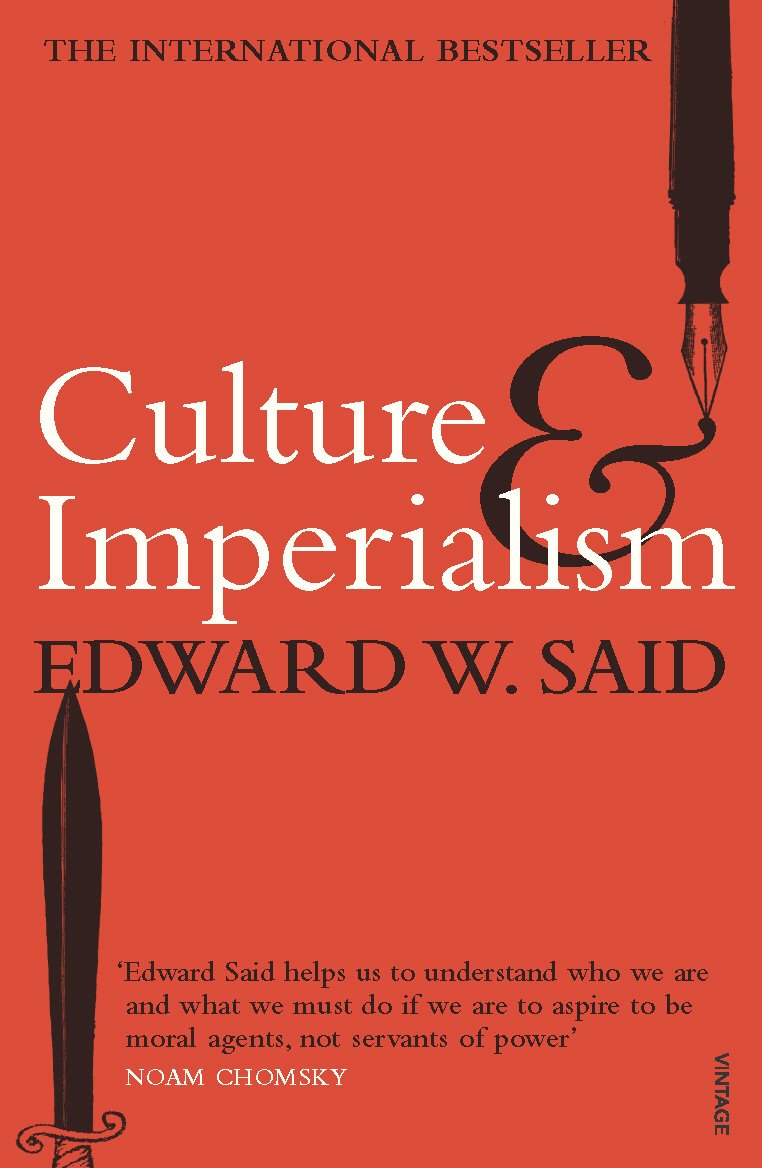About this deal
The book covers a range of topics, from the impact of colonialism on the works of Joseph Conrad and Jane Austen, to the ways in which Western films have depicted the East. Yet just as human beings make their own history, they also make their cultures and ethnic identities.
Said posits many ideas relating to imperialism and nationalism and his bottom line (with which I agree) is that both tend to be internecine in nature.Considered ground-breaking when first published, this book now comes across as a little dated and jaded in its outlook. A landmark work from the author of Orientalism that explores the long-overlooked connections between the Western imperial endeavor and the culture that both reflected and reinforced it. The 103 third parties who use cookies on this service do so for their purposes of displaying and measuring personalized ads, generating audience insights, and developing and improving products. Said emerges in this, as in his other work, as one of the most erudite, sophisticated, and (perhaps most importantly) profoundly humane thinkers of the past century. In this sense the counterpoint does not consist in the traditional parallel between an author and his or her critics.
Second side note: Oddly enough, one of the most significant impacts of this book was to create in me a desire to re-read many of the 19th Century British novels I last read in high school. Said argues that, although the "age of empire" largely ended after the Second World War, when most colonies gained independence, imperialism continues to exert considerable cultural influence in the present. As he explains repeatedly, “understanding that connection does not reduce or diminish the novels’ value as works of art: on the contrary, because of their wordliness, because of their complex affiliations with their real setting, they are more interesting and morevaluable as works of art” (13).
Missing is discussion about Russian/Soviet and East Asian imperialist literatures - perhaps there is more that Said wrote/spoke on these regional literatures, but undoubtedly similar contrapuntal reading opportunities here too with Eastern European, Balkan, Ukrainian, Korean, Philippine, Vietnamese, Cambodian (etc etc etc) voices. Besides being an academic, Said also was an accomplished pianist, and, with Barenboim, co-authored the book Parallels and Paradoxes: Explorations in Music and Society (2002), a compilation of their conversations about music. In the beginning of the work, Said claims that the Daniel Defoe novel Robinson Crusoe, published in 1719, set the precedent for such ideas in Western literature; the novel being about a European man who travels to the Americas and establishes a fiefdom in a distant, non-European island. The prose oscillated between elegance and a density that bogged me down at times (I couldn't help but laugh when, near the end, Saïd mocks the indecipherable jargon of modern academia; but, given his clarity and accessibility in other forums- lectures, interviews, speeches- he gets a pass).
B. Yeats, Chinua Achebe, and Salman Rushdie to show how subject peoples produced their own vigorous cultures of opposition and resistance. Unfortunately, sometimes, I got the impression that he was saying, "Look how smart I am" when enumerating examples, and several of his points were repeated many times, weakening the impact of the book. Now, YMMV on this, especially if you don’t have the misfortune to come from a place that has a violent revolution in its recent past. For Said, The critic’s function is both enhanced and focused by his or her capacity to be in the world.
Facebook sets this cookie to show relevant advertisements to users by tracking user behaviour across the web, on sites that have Facebook pixel or Facebook social plugin. Culture and language are very powerful tools, Said demonstrates over and over how western imperialism uses the written word to dominate other nations and send some into near obliteration. I will definitely reread Culture and imperialism after I’ve read colonialism and postcolonilsm for dummies, something I’ve should of done the first time around! Like, yeah, culture plays a central role in maintaining and confirming power/ hegemonic ideology, imperialist or otherwise. Fox and Partha Chatterjee suggest crucial modifications of Said’s opposition between the West and the colonized, arguing that nationalist opposition developed out of Western orientalist constructs.
While The New York Times review notes the book's heavy resemblance to a collection of lectures, it concludes that "Yet that telegraphic style does not finally mar either the usefulness of 'Culture and Imperialism' or its importance. An idea at the back of it; not a sentimental pretence but an idea; and an unselfish belief in the idea—something you can set up, and bow down before, and offer a sacrifice to.Very highly recommended for anyone who wants to understand how cultures are dominated by words, as well as how cultures can be liberated by resuscitating old voices or creating new voices for new times. Considered an unofficial 'sequel' to Saïd's famous "Orientalism", "Culture and Imperialism" vastly expands the scope and scale of the former work.
 Great Deal
Great Deal 